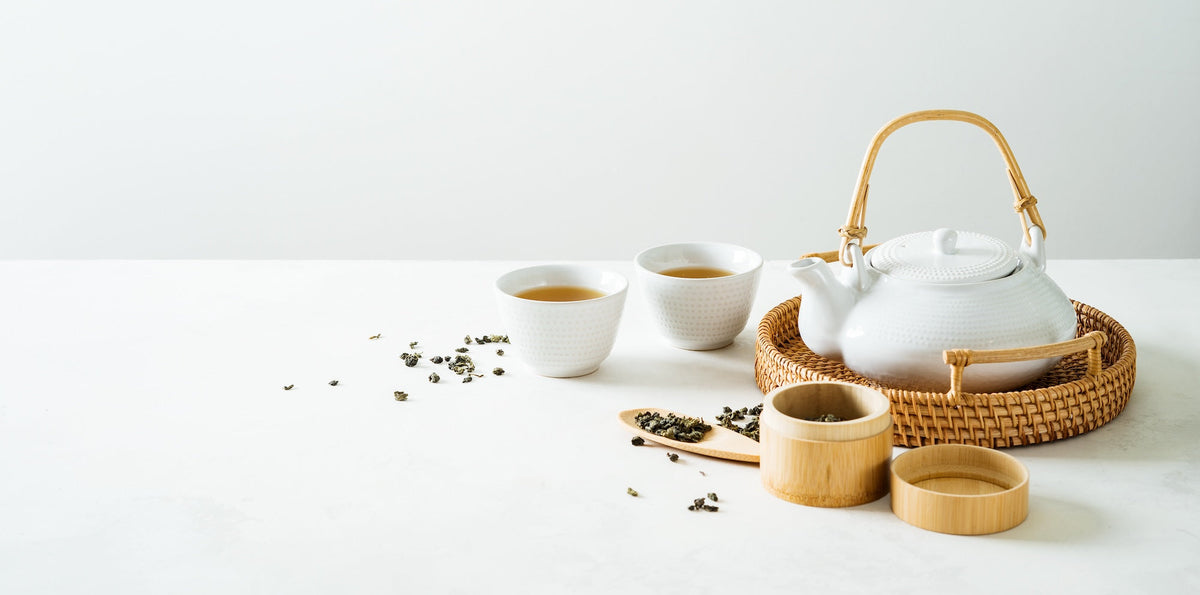
Chinese Teas and Their Benefits: A Guide to Health and Wellness
|
|
Time to read 3 min
|
|
Time to read 3 min
Tea has been an essential part of Chinese culture for thousands of years, not only for its refined taste but also for its impressive health benefits. From ancient emperors to modern wellness enthusiasts, drinking Chinese tea is a cherished practice known to promote physical and mental well-being.
In this guide, we explore China tea benefits, the best Chinese tea for health, and how to find the healthiest Chinese tea for your needs. Whether you're a casual tea drinker or a connoisseur, understanding the benefits of drinking Chinese tea can enhance your daily routine.
"A cup of Chinese tea is more than a drink—it’s a bridge to history, wellness, and tranquility."
China is the birthplace of tea, with a history dating back over 4,000 years. Traditional Chinese medicine (TCM) has long recognized tea as a healing beverage, believed to balance the body’s yin and yang.
Chinese teas are packed with antioxidants, amino acids, and essential minerals that contribute to overall well-being. Whether you're drinking green tea for metabolism, oolong tea for digestion, or pu-erh for detoxification, Chinese teas and benefits go hand in hand.
Each type of Chinese tea has unique properties. Below, we explore the most health-beneficial Chinese teas and their wellness advantages.
Green tea, particularly Dragon Well (Longjing) and Biluochun, is among the healthiest teas in China. Rich in catechins and polyphenols, it provides:
✔ Metabolism boost – Helps burn fat naturally
✔ Detoxification – Flushes out toxins
✔ Anti-aging effects – Fights free radicals for youthful skin
✔ Brain health – Improves cognitive function
Oolong tea, such as Tieguanyin (Iron Goddess) and Da Hong Pao (Big Red Robe) , is partially fermented, making it a great middle ground between green and black tea.
✔ Aids digestion – Reduces bloating and enhances gut health
✔ Heart health – Lowers bad cholesterol (LDL)
✔ Fat burning properties – Improves metabolism
Pu-erh is a fermented tea known for its deep, earthy flavor and powerful health benefits. This tea is revered in traditional medicine as a digestive aid and a detoxifying agent .
✔ Lowers cholesterol – Reduces harmful blood fats
✔ Aids digestion – Supports gut microbiome
✔ Promotes weight loss – Burns stubborn fat
✔ Reduces stress – Contains GABA and theanine for relaxation
White tea, including Bai Mudan (White Peony) and Silver Needle, is the least processed Chinese tea. It’s renowned for:
✔ Strong antioxidants – More than green tea
✔ Skin protection – Reduces wrinkles and protects against sun damage
✔ Immune system boost – Fights infections naturally
Chinese black tea, or Hong Cha, is highly oxidized and provides a strong, malty flavor with numerous health benefits.
✔ Boosts energy – Great morning alternative to coffee
✔ Supports heart health – Improves circulation
✔ Reduces stress – Contains L-theanine for relaxation
Choosing the best Chinese tea for health depends on your personal needs:
If you're new to Chinese tea, start with a high-quality Longjing green tea or Tieguanyin oolong tea to enjoy both flavor and wellness benefits.
Drinking Chinese tea regularly offers numerous advantages beyond hydration:
Incorporating Chinese tea into your daily routine is one of the simplest ways to improve overall well-being while enjoying a delightful cup of tea.
To fully enjoy China tea benefits, it's important to brew it correctly:
✔ Water temperature:
✔ Brewing time:
Use high-quality loose-leaf tea instead of tea bags to ensure the full aroma, taste, and health properties are retained.
From the best Chinese tea for health to the benefits of drinking Chinese tea , it's clear that Chinese teas and benefits go hand in hand. Whether you want to lose weight, improve digestion, or simply relax, there is a healthiest Chinese tea that suits your lifestyle.
By making Chinese tea part of your daily routine, you can enjoy centuries of wisdom and natural healing in every sip.
Zhao, Jian, et al. "Health Benefits of Tea: A Review of Scientific Evidence." Food Research International, vol. 53, no. 2, 2013, pp. 625–638. DOI:10.1016/j.foodres.2013.06.028
Yang, Chung S., et al. "Tea and Health: Studies in Humans and Experimental Models." The Journal of Nutrition, vol. 143, no. 8, 2013, pp. 1344-1348. DOI:10.3945/jn.113.176602
Mao, Jian-Hui, et al. "Effects of Green Tea Polyphenols on Metabolism and Gut Microbiota." Nutrients, vol. 11, no. 10, 2019, p. 2365. DOI:10.3390/nu11102365
Describe your products, collection etc...
What are you looking for?










